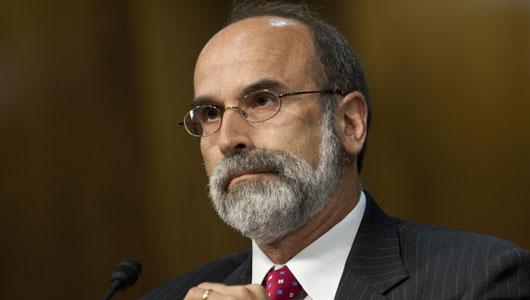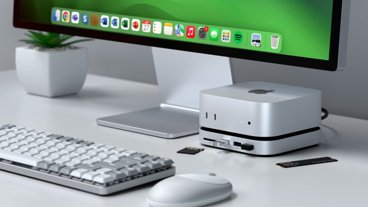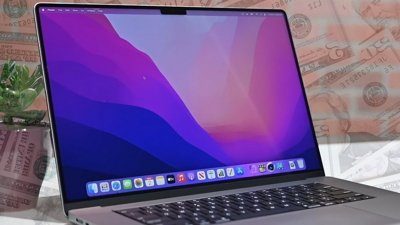A U.S. appeals court on Tuesday heard initial arguments from Apple regarding the stoppage of antitrust monitor Michael Bromwich's duties until while the court decides whether he should be removed altogether.
As part of its ongoing battle to have Bromwich removed, or at least restrained, from his monitorship, Apple stated its case to the U.S. Court of Appeals for the Second Circuit. Apple argues that the external compliance monitor's work should be halted until the court hands down a ruling on a requested removal, reports Reuters.
According to Apple, Bromwich is disrupting business operations and harming the company with his questionable monitoring methods. If the ECM were allowed to continue work, only to be removed when the court later finds his actions improper, Apple would have spent time and money it cannot get back.
"The court can't give us relief," said Apple counsel Theodore Boutrous, Jr. "We can't turn back the clock."
So far, however, the appellate court's three-judge panel seems unmoved by Apple advances.
"Maybe if they had spent some of their very valuable time keeping the company from violating antitrust laws, perhaps they wouldn't be in this position," Judge Gerard Lynch said.
The jurist suggested the court draw up an order specifying the limits of Bromwich's role, but Boutrous said Apple would still oppose such measures. Counsel noted that the Department of Justice is capable of monitoring Apple on its own without the aid of a private party with incentive to grow income based on the scope of his tenure, reports The Wall Street Journal.
"The government has other things to do," Judge Guido Calabresi said.
As for the DOJ, lawyer Finnuala K. Tessier argued Bromwich had to get back to work immediately to ensure Apple does not again engage in illicit activities.
"An ounce of prevention is worth a pound of cure," Tessier said.
Apple has complained accused the ECM of conducting a wide-roving and unconstitutional investigation of the company, making requests that go beyond the scope of his duties.
For example, Bromwich wanted to meet with Apple executives and board members like Jony Ive, many of whom do not have insight into the company's daily business operations. In addition, the ECM's pay structure of over $1,000 per hour was called excessive.
The debacle stems from the DOJ's successful e-books case against Apple. In September, Judge Denise Cote handed down an injunction against Apple after finding the tech giant guilty of colluding with book publishers to falsely inflate the price of e-books sold through the iBookstore.
While the appeals court debates the matter, Bromwich's work is being put on hold until a determination is made on Apple's request for an even longer suspension of duties.
 Mikey Campbell
Mikey Campbell














 Sponsored Content
Sponsored Content
 Wesley Hilliard
Wesley Hilliard
 AppleInsider Staff
AppleInsider Staff
 Andrew Orr
Andrew Orr
 Amber Neely
Amber Neely

 William Gallagher
William Gallagher









92 Comments
Getting busted artificially manipulating market prices sucks. I'd say I hope Apple learned their lesson, but seeing how they seem more indignant about the public humiliation than embarrassed about cheating the consumer, I'm gonna guess they probably aren't.
Getting pretty tedious now.
[quote name="Cash907" url="/t/161895/apple-continues-fight-to-have-antitrust-monitor-reined-in-judges-appear-skeptical#post_2467559"]Getting busted artificially manipulating market prices sucks. I'd say I hope Apple learned their lesson, but seeing how they seem more indignant about the public humiliation than embarrassed about cheating the consumer, I'm gonna guess they probably aren't.[/quote] When did the market decide Amazon's 9.99 is the market price? Didn't Amazon manipulate that too? I like this line: "The government has other things to do," Judge Guido Calabresi said. --Like continue justifying Amazon's monopoly.
I still haven't seen a clear explanation of what it is that Apple did wrong with the e-book case. Apple did not have any monopoly power in their negotiations with the publishers nor was Apple proven to have facilitated negotiations between publishers. The opposite was quite clearly true; the publishers were colluding prior to Apple's involvement. I also fail to understand why the DOJ wanted to pursue Apple in the first place. Raising consumer prices does not make a monopoly or antitrust case. I do understand that Apple has smart lawyers, and structuring a deal so it has the plausible deniability built in seems believable. But ultimately the publishers (who do have a government-given monopoly) changed their licensing deals which forced the impact. Had they allowed Amazon to keep the wholesale model, Apple would have been happy to set their prices to match, and the publishers would just lose money selling to Apple. This might not have been a bad thing; Amazon loses on all the books they sell, and the publishers lose on the books they don't! It would have applied pressure to Amazon to change their ways, but without pushing their hand. ...but all this still comes down to publisher action and not Apple's.
Ive to Bromwich.."Mikey, come on up and let's have lunch on the roof... the view is great"
Ive to police.. "shit, he just slipped"